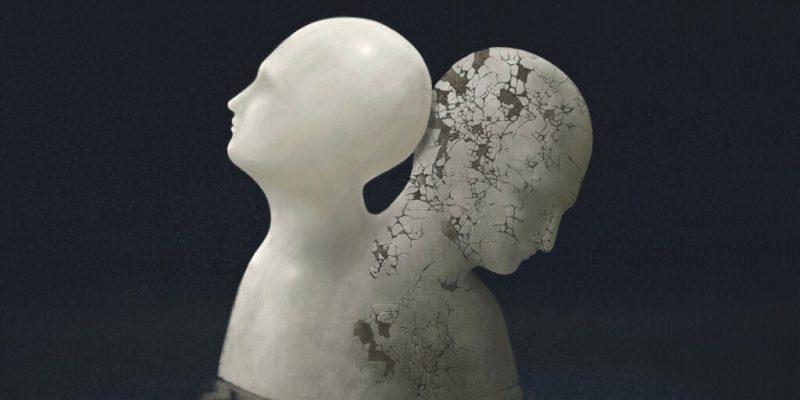Insensitive people look at the world blindfolded with coldness in their heart. In fact, while most of us connect with the emotional realities of others, there are those who don’t react to others’ misfortune at all and often don’t even care about anyone other than themselves. However, what lies behind this insensitivity?
Some say it’s an evil of the present time. Indeed, disinterest and emotional coldness seem to dominate many everyday situations today. Morbid curiosity or social indifference prevails. The kind that makes people turn away from those having a hard time, and pay attention to their cell phones instead.
People who don’t want to see, who shirk their responsibilities and prioritize their own well-being over that of others demonstrate a form of insensitivity. It’s a kind of selfishness that’s hard to see. That’s because, in a way, our lifestyle today tends to numb feelings of solidarity.
We see insensitivity in the neighbors who don’t care about the old man who lives alone. We see it in the peers of children who are bullied, in people who don’t stop to ask their friends or colleagues why they seem so sad. Indeed, life urges everyone on and it always seems that there are more important things to do.
Indifference is the opposite of social responsibility.
How are people insensitive?
Elie Wiesel, a Romanian writer who survived life in a concentration camp, once described what insensitivity and indifference in the human being meant to him. He claimed it was “A strange and unnatural state in which the lines blur between light and darkness, dusk and dawn, crime and punishment, cruelty and compassion, good and evil.”
Insensitive people bring unhappiness and also suffering. Because those who don’t see and don’t act on the needs and feelings of others perform harmful and humiliating behaviors. In fact, by not connecting with the realities of others, these people are exhibiting cold and intimidating behavior.
Let’s see what characteristics define these kinds of people..
They practice harmful assertiveness
In 2019, Dr. David Watson et al from the University of Notre Dame conducted a study (2019) that revealed something rather interesting. They stated that certain personalities demonstrate a type of pathological extroversion. It demonstrates a pattern of insensitivity. It’s a behavior that manifests itself mainly through harmful frankness.
Insensitive people apply a type of harmful assertiveness. In other words, they don’t hesitate to tell others everything they think of them. They’re the kind of people that tell you that “I tell it like it is and will always tell you the truth”. However, their truth is always solely from their own point of view and is harmful.
Passive rudeness and making degrading comments under the guise that they’re only telling the truth is another form of insensitivity.
They show a lack of instrumental affection or empathy
Insensitive people even manifest their lack of affection with their partner, family, and friends. Furthermore, it’s extremely common for them to apply what we know as instrumental empathy. In other words, they connect with the needs of others only when they feel like it. As a matter of fact, only when they can get something in return.
The department of psychiatry at Harvard Medical School conducted research that indicates this characteristic is common in narcissistic personality disorder.
They tend to tease and intimidate
When a person doesn’t identify with who’s in front of them it’s very easy for them to use mockery, irony, and sarcasm that hurts. What’s more, bullying is a frequent behavior in this insensitive personality. In fact, it tends to reinforce their ego.
This often causes them to go too far with their jokes jokes or to touch on sensitive topics that exceed acceptable limits and ethical principles.
They have a lack of social responsibility
Insensitivity manifests itself in many ways. One is in the lack of social responsibility. However, what does this mean? It means that these men and women don’t react to injustices or discrimination in any form, from manipulation to violence.
There are many insensitive people who don’t really know they’re like this. You may even be so yourself, if you don’t react to those injustices that you see at work, on the street, or close to you.
They aren’t open to opinions other than their own
Insensitive people don’t tolerate any vision different from their own. In fact, they view any opposite perspective or voice as a threat. This makes them difficult to live with. It’s even difficult to have a conversation with them.

They rarely think before speaking
Insensitive people seldom think before they speak. They don’t reflect, and they aren’t careful to choose the right words in order to be respectful and not cause any harm. Neither do they enrich a dialogue by making it productive and empathetic. As a matter of fact, they do the opposite. As we pointed out earlier, they tend to use harmful frankness accompanied by unfiltered and impulsive communication.
They exhibit exclusionary behavior
This nuance is striking in people who aren’t particularly sensitive. Indeed, their lack of emotional awareness defines them. Not only do they not connect with the feelings of others, but they also don’t understand their own.
This means that, when they see a friend or another figure who’s having a bad time, they feel annoyed. As a matter of fact, they don’t know how to react and don’t know what to do. In the end, they choose to avoid contact, to let go, and not react. They feel it’s better to keep those with their problems away in order to keep their own personal territory safe. Excluding others is one way of making their life more comfortable.
As you can see, insensitivity is a social scourge that highlights the darkest part of the human being.
The post Insensitive People: What Are They Like? appeared first on Exploring your mind.



















Comments